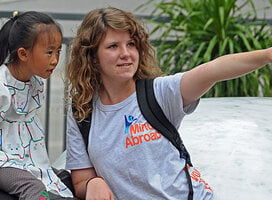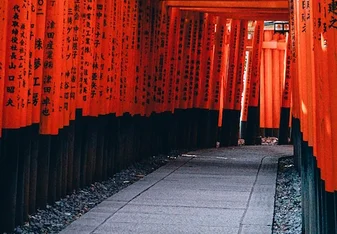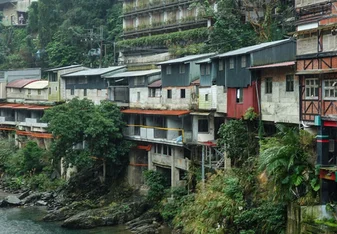Volunteer in South Korea
Volunteer Programs in South Korea
About
Even though South Korea has been around for 5000+ years, it’s not too late to jump in and make a difference! South Korea boasts some of the world’s best information and communication technology, making it one of the most scientifically advanced countries in Asia. Despite the fact that it is close to many strong and invasive neighboring countries, South Korea has successfully defended its borders. Further, it has managed to maintain a strong sense of identity, including a unique language. As the only divided country in the world today, it is increasingly important to know and understand the economics, politics, and social situations affecting the South Korean people.
The capital, Seoul, is one of the largest metropolitan cities on the planet; the city is a tapestry weaving seamlessly ancient culture with modern rhythms. There is a great need for volunteers not only in the busy city streets of Seoul, but also in the surrounding countryside.
Program Types
Many different types of volunteer programs exist in South Korea; it is advised to find a cause you are truly passionate about, and follow up on opportunities that fall in line with your interests. Generally speaking, the following remain the most popular options for international volunteers.
Orphanages and Working with at-risk Youth
Orphans are many across Korea, and unfortunately, few have little hope for being adopted. These children are in need of affection, and low-staff numbers mean that many orphanages struggle to give each child the attention he/she needs. You can contribute by providing daily care and being a positive role model for the kids.
Teach English to underprivileged Koreans
While it is no secret that many Korean families are willing to pay a few won for a private English tutor or classes, there still remains a large number of Koreans who cannot afford such luxuries, oftentimes leaving them behind the cusp and relatively unskilled when compared to their peers.
Campaign for North Korean refugees
If working in politics are more your tune, you are in luck - did you know that more than 20,000 North Korean refugees now reside in South Korea? Many of these individuals flee here after years of hiding in other neighboring countries. Most times, the refugees arrive feeling hungry and guilty for leaving family members behind, and are poorly educated; volunteers are needed to help these individuals assimilate to life in South Korea.
Health & Safety
Health and Safety of Volunteers in Korea
Prior to embarking on your volunteer abroad adventure, be sure to visit a health-care provider and have a physical check up done. It’s advised that you are up-to-date on all of your vaccinations and medications. Be sure to double check where your volunteer program is located, as it will affect your need to bring Malaria medication with you. Volunteers headed for Malaria-infected areas are advised to bring strong bug spray and bed nets, in addition to their antimalarial prescription drugs.
South Korea volunteers are also recommended to have shots to prevent Typhoid and Hepatitis B, especially if you anticipate having sexual contact with the local population or wish to prevent worst-case scenarios should you get in an accident.
The crime rate in South Korea is low, but it is advised that travelers exercise normal safety precautions and secure valuables to avoid pick pocketing or purse snatching. This is especially important in areas often visited by the tourist crowds.
Volunteering Tips
Volunteering Tips
If you love appetizers, you may confuse South Korea with heaven! South Korean cuisine revolves around a number of different banchan (appetizers), up to as many as 12 per meal, and can be anything from meat to vegetables to seafood. Don’t fill up though, as Korean BBQ and bibambap make for a delicious (and filling!) evening feast. Hope you’ve honed in on your chopsticks skills, as Korean food is traditionally eaten with stainless steel chopsticks that are a bit more slippery than their wooden counterparts.
Temple enthusiasts unite! Korean temples are a beautiful mix of Dao, Confucian, and Buddhist art and showcase an ancient-culture long past. The Gyeongbokgung in Seoul is not to be missed! As a peninsula, there are many water-themed activities for volunteers to explore and enjoy in their free time.
Volunteering abroad is an invaluable way to help mold your future - by volunteering, you will not only gain practical skills and experiences, but you will be given the freedom to explore possible career tracks. Not everyone can say they can survive in a foreign land, after all! Develop your interpersonal skills and prove that you care; volunteering demonstrates you’re motivated and courageous.
Life in Korea isn’t too expensive, but it’s best to save your won for more fun! Cutback on costs by staying with a host family and only eating local food. See that small, possibly dirty looking restaurant on the street? Squeeze in between the locals and eat there. Up your chances of making Korean friends by using public transportation and cutting out wasteful spending.
Don’t forget to keep the floor clean, take off your shoes when you enter a home, and memorize the chorus of a few Korean pop songs! With these tips and more, you’re on your way to having a wonderful and fulfilling experience while volunteering abroad in South Korea.
Contributed by Megan Lee






















